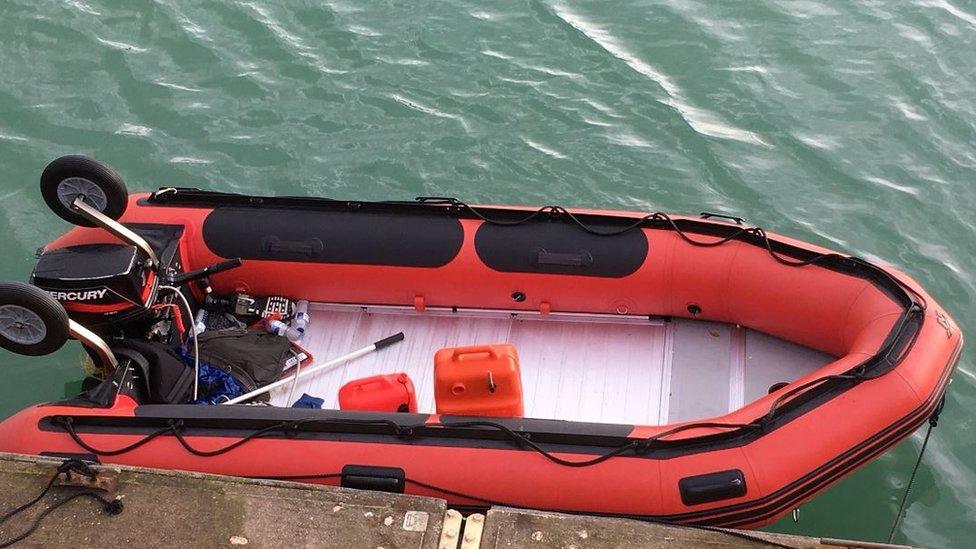Reality Check: How many people seek asylum in the UK?
- Published
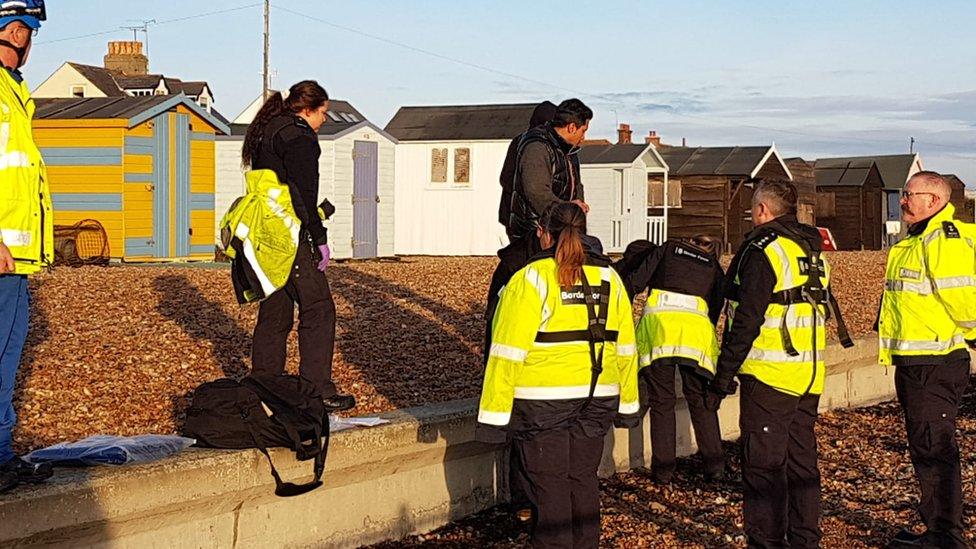
Groups of people have been crossing the Channel in small boats in recent weeks
More than 230 people have attempted to cross the English Channel in small boats since November, according to a tally being kept by BBC News.
Home Secretary Sajid Javid has declared the crossings "a major incident".
Mr Javid said that while the UK had "obligations to genuine asylum seekers which we will uphold, we will not stand by and allow reckless criminals to take advantage of some of the most vulnerable people in our global society".
So how many of those who've crossed the Channel in recent weeks are claiming asylum? The Home Office declined to give details.
But if all of them did so, it would be equivalent to the number of people who claim asylum in the UK every three days.
How many asylum seekers are there?
In 2017, there were 26,350 applications for asylum made in the UK.
This compares with 198,255 applications for asylum made in Germany, 126,550 in Italy and 91,070 in France over the same period.
In total in the UK, there were 21,290 decisions made with 31.8% gaining some form of protection.
The UK grants "refugee status" to those who are unable to live in their own country for fear of persecution, external because of race, religion, nationality, political opinion or other factors such as sexual orientation. A successful application usually allows someone leave to remain for five years with the opportunity after that to apply for indefinite leave to remain.
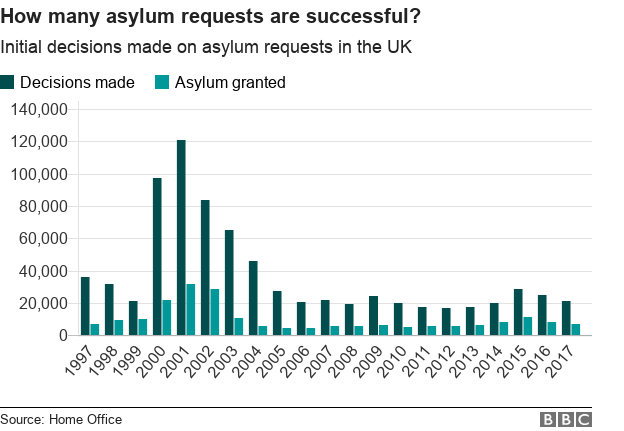
Data on how migrants arrive in the UK is not readily available, but a report by the Migration Advisory Committee, external released in May 2018 provides estimates for "clandestine entries".
These include those arriving by boat, but also those who stow away on ferries and lorries.
In 2016-17 the figure was estimated to be 2,366, decreasing to 1,832 in 2017-18.
The report does not say what proportion of these people went on to seek asylum.
Where do asylum seekers come from?
The largest group seeking asylum in the UK last year was from Iran, which is where many of the groups crossing the channel recently are reported to have come from.
Of the 2,690 seeking asylum, 47% were granted it based on the initial decision - higher than average for asylum seekers as a whole.
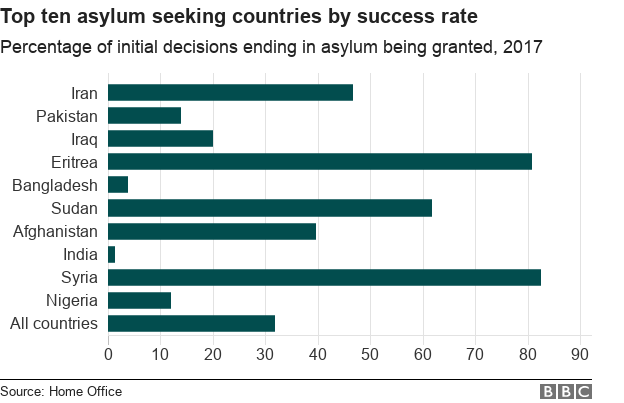
These statistics cover cases in which decisions are made. The rest are counted as "pending".
At the end of last year, there were 24,557 people waiting for an asylum decision of whom 42% had been waiting more than six months, which is the Home Office's target for initial rulings to be made.
Those decisions may then be challenged in court, and the majority of those who are initially unsuccessful go down this route.
Of the 14,149 appeals determined in 2017, 5,022 - a third - were allowed, in effect overturning the Home Office's initial decision.
A note on terminology: The BBC uses the term migrant to refer to all people on the move who have yet to complete the legal process of claiming asylum. This group includes people fleeing war-torn countries, who are likely to be granted refugee status, as well as people who are seeking jobs and better lives, who governments are likely to rule are economic migrants.



- Published31 December 2018
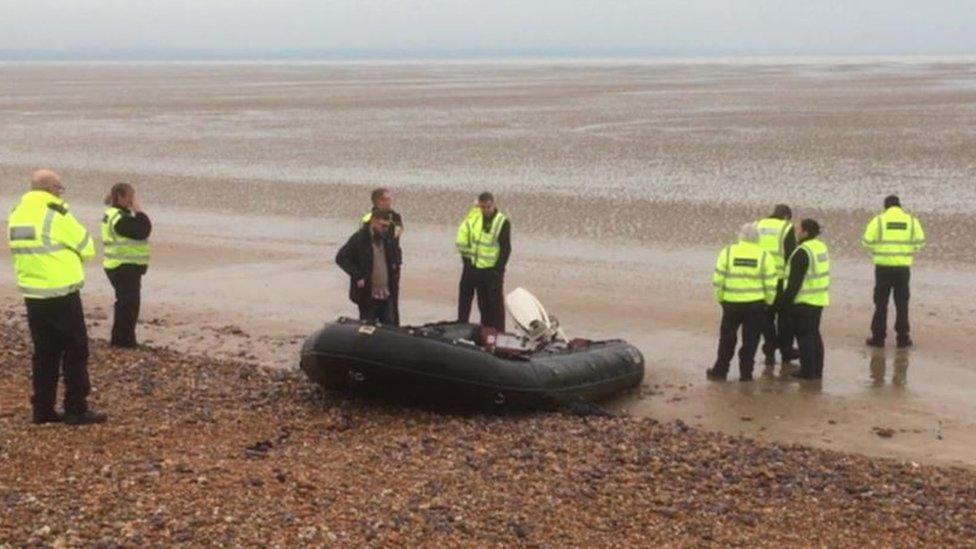
- Published26 November 2018
